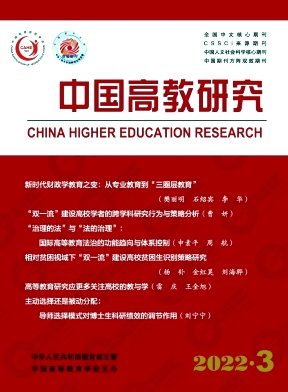Education Rule of Law
SHEN Suping; ZHOU Hang
Influenced by the New Public Management Movement and the New Administrative Law, the development trend of rule of law in higher education in five countries such as Britain, the United States, Germany, France and Japan has shown an obvious trend of functionalism, and “governance effectiveness” has become an important criterion for the measurement of rule of law, which is mainly manifested in: the legal nature and objectives of universities are corporatized, market-oriented and professionalized; the relationship between government and universities is equalized, contracting and performance-based; the internal governance of universities is hierarchical, externalized and cooperative. However, the rule of law tradition and overall legal order of the five countries constitute a systematic control of functionalism, which enables the overall balance between rights and obligations of teachers and students in colleges and universities and obtains substantial protection, which is mainly manifested in the rights and interests of teachers, the rights of student participation and the rights of students to succeed in learning. In the process of promoting the rule of law in education governance, we should, on the one hand, build a “law of governance” and highlight the effectiveness of legal norms and institutes; on the other hand, we should insist on the “governance of law” and provide systematic guarantee of law and order for the rights and interests of teachers and students in colleges and universities.
